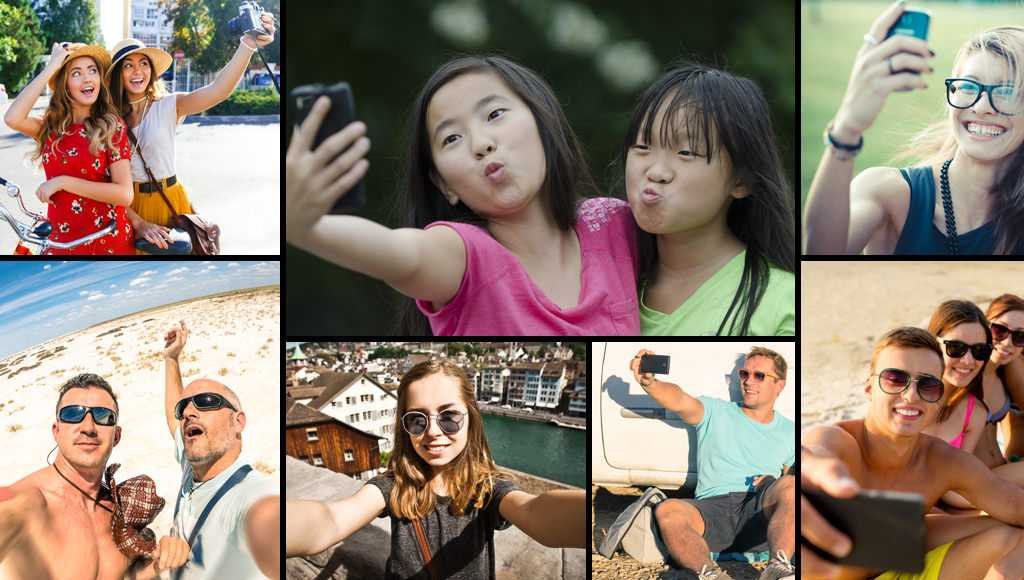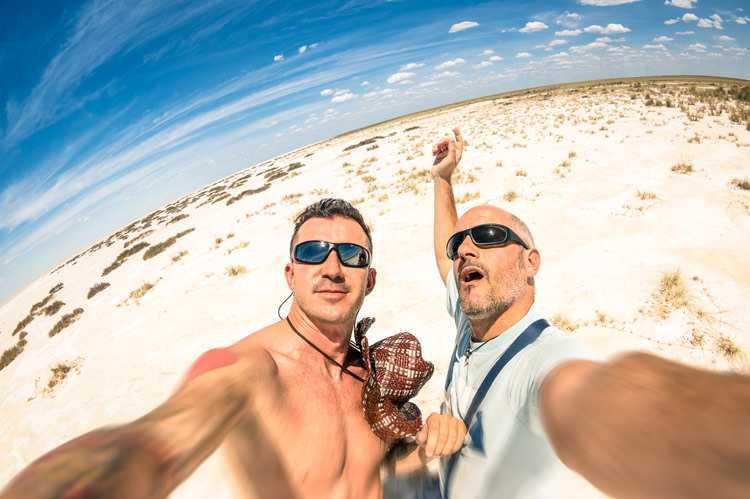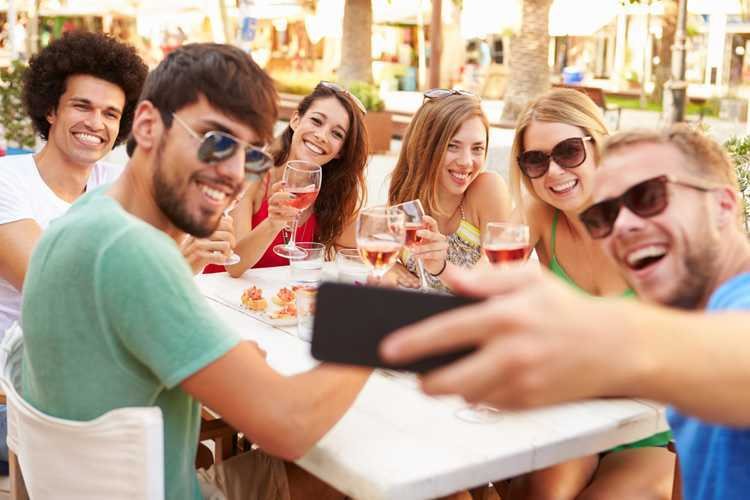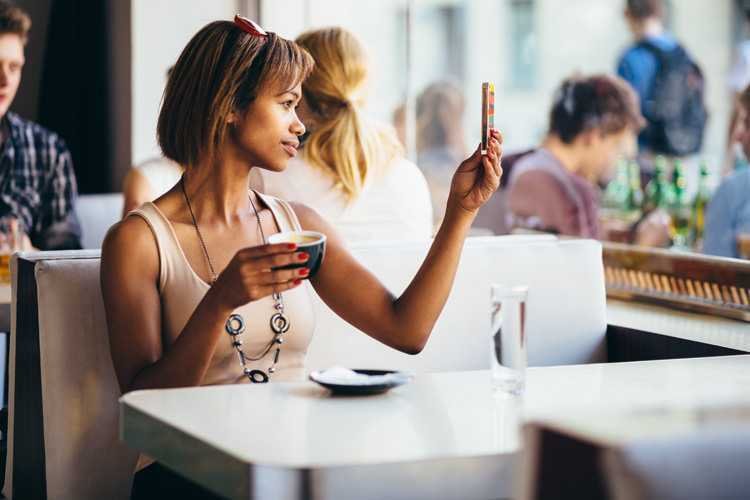The Selfies overflowing in every social media space, with the subject of the ordinary everyday person up to him Papa or him Ομπάμα.
The word itself has been added to Online Dictionary of Oxford, και έχει οδηγήσει σε μια σειρά από αμφισβητούμενες αργκό ορολογίες, συμπεριλαμβανομένων των " belfie " (μια φωτογραφία της οπίσθιας όψης ενός ατόμου), " helfie " (μια φωτογραφία από τα μαλλιά του), " welfie " (μια φωτογραφία κατά την ώρα της γυμναστικής) και " Ussie " (ένα αυτο-πορτρέτο μίας ομάδας).
In Instagram και μόνο, μια αναζήτηση για "selfies" δίνει αποτελέσματα σε πάνω από 230 εκατομμύρια εικόνες.
But have you ever wondered why do we do that? What really means putting selfies (self-portraits) as a social phenomenon?
Are we all becoming more and more narcissistic, or are selfies just a fun form of self-expression? Whether you like it or dislike them, self-portraits give us some fascinating ideas about human psychology.
 Enthusiastic friends pull selfie in Namibia
Enthusiastic friends pull selfie in Namibia
Why are we doing this? THE Keith campbell , a professor of psychology at the University of South Carolina in the United States of America, suggests that one of the reasons we love selfies is because they serve as a creative outlet.
With smartphones and social media sites in our hands, it is easier than ever to express ourselves to a wide audience.
Speaking at Today.com, ο κος Κάμπελ σημειώνει, "Υπάρχουν φορές που οι άνθρωποι χρησιμοποιούν τις selfies ως μια μορφή καλλιτεχνικής έκφρασης. Πρόκειται για μια σύγχρονη παραλλαγή των αυτοπροσωπογραφιών ενός ζωγράφου".
Selfies also allow us to exercise greater control over how others see us and even online, and that is quite extravagant.
Χάρη στο μπροστινό φωτογραφικό φακό των σύγχρονων κινητών τηλεφώνων, μπορούμε να πάρουμε αμέτρητες φωτογραφίες του εαυτού μας μέχρι να έχουμε μια εικόνα που μας παρουσιάζει ακριβώς όπως εμείς θέλουμε - μια εικόνα που είμαστε στην ευχάριστη θέση να μοιραστούμε με τον online κόσμο.
Interestingly, the latest surveys show that this "selective self-presentation" can substantially boost our self-esteem and boost self-confidence us.
And the potential benefits of self-portraits do not end there. There are some spontaneous and familiar quality selfies that have changed the way we demonstrate, share and remember our personal events. We do not collect any impersonal autographs when we meet a celebrity on the street, nor do we shoot postcards to share our memories of our travels.
Αντ 'αυτού, μπορούμε να συλλάβουμε με τον φωτογραφικό μας φακό μια μοναδική στιγμή με εμάς μέσα και να το μοιραστούμε με τους φίλους μας αμέσως. Όπως ο Dr. Andrea Letamendi επισημαίνει, «Ψυχολογικά μιλώντας, μπορεί να υπάρχει κάποιο όφελος αν διαμοιράζουμε τα αυτό-πορτρέτα μας, επειδή η πρακτική αυτή είναι συνυφασμένη στην κοινωνική μας κουλτούρα και είναι ένας τρόπος για να αλληλεπιδρούμε κοινωνικά με τους άλλους".
 A group of friends taking self-portraits during a meal
A group of friends taking self-portraits during a meal
 Young woman taking a self-portrait in the café by Peter Bernik
Young woman taking a self-portrait in the café by Peter Bernik
However, this is not all good news for self-portrait fans. More and more, researchers are suggesting a more serious concept in the trend of selfies, which suggests that selfies are a deeper psychological and social issue. In many ways, the rise of social media, combined with the prevalence of selfies, has increased the importance we place on our own appearances.
Η research has linked the selfies to insecurity and her self-focusing, with people asking for confirmation from others through likes and comments.
There is also a self-sustaining cycle involved in the self-portraits we share, explains the psychologist Jesse Fox : "Οι άνθρωποι που αρέσκονται στην αυτο-επικεντροποίηση δημοσιεύουν τις περισσότερες selfies, οι οποίες οδηγούν σε μεγαλύτερη ανατροφοδότηση από τους φίλους τους στα Social Networks, οι οποίοι τους ενθαρρύνουν να δημοσιεύσουν ακόμα περισσότερες φωτογραφίες των εαυτών τους ".
And if the exchange of information on social media can strengthen friendships, excessive narcissism, often associated with self-portraits, can be detrimental to the quality of our relationships. A study in the United Kingdom found that increased post-portraiture was associated with decreased intimacy with others.
The reason for this is that publishing many photos from our self may create the impression that you are shallow, in vain, or self-centered, and none of the previous adjectives are appealing to a friend or partner.
 A female tourist gets self-portrait in Greece
A female tourist gets self-portrait in Greece
However, we could equally argue that self-portraits could be used to challenge the ideals of beauty and appearance.
Writing in Psychology Today The Sarah J. Gervais notes: “I want to believe that Instagram προσφέρει μία ήρεμη αντίσταση στο μπαράζ των τέλειων εικόνων που αντιμετωπίζουμε κάθε μέρα. Αντί να βομβαρδιζόμαστε με αυτές τις τέλειες δημιουργίες ... μπορούμε να δούμε μέσα από τα μηνύματα των φωτογραφιών του Instagram μια μεγάλη ποικιλία από πραγματικούς ανθρώπους".
Source: Article of psychologist Leah Tierney, who works in Shutterstock's marketing





